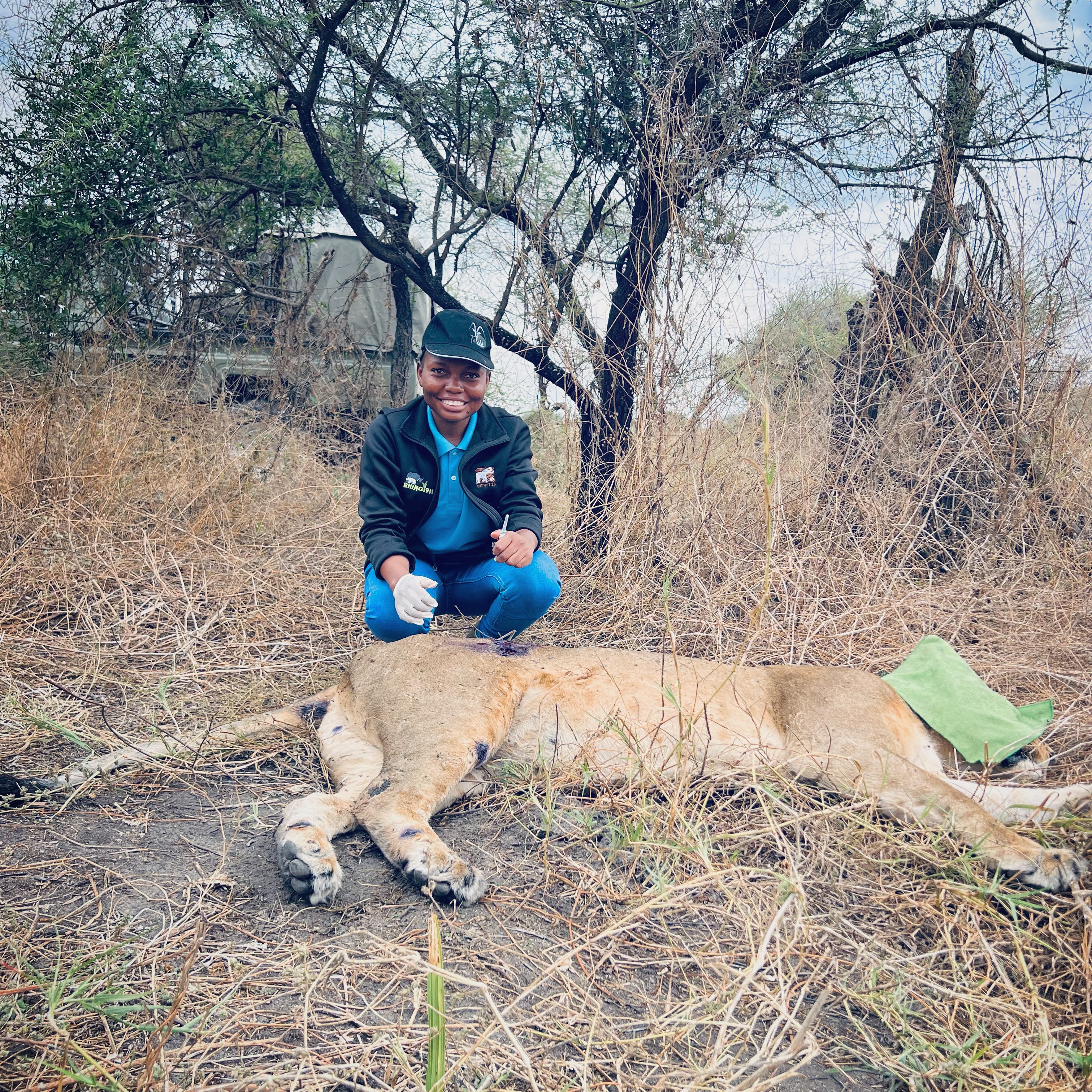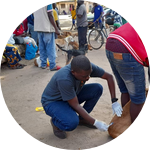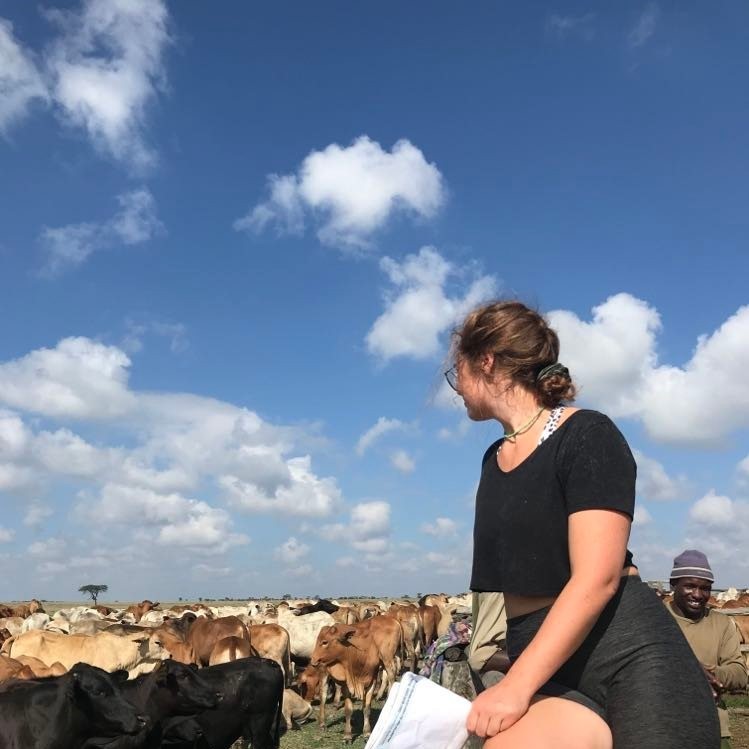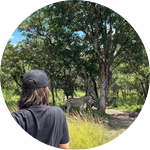About This Project
Dogs near Tarangire National Park can be reservoirs of zoonotic and cross-species diseases, such as rabies and canine distemper. Diseases can spill over into or from wildlife populations, leading to significant health impacts and population declines among susceptible species. This project focuses on collecting blood samples from domestic dogs to screen for canine distemper and rabies and implementing mass vaccination campaigns to control zoonotic diseases that threaten animal health.
Ask the Scientists
Join The DiscussionWhat is the context of this research?
The Tarangire ecosystem in Tanzania is a critical biodiversity hotspot where domestic animals, wildlife, and humans interact, increasing the risk of disease transmission. With growing human and livestock populations around Tarangire National Park, habitat encroachment and resource competition intensify, escalating disease spillover risks. In recent years, there have been deaths of several children showing typical signs of rabies after being bitten by a rabid dog. Rabies can affect all mammals and, in most species, it leads to death. Canine distemper is caused by a virus (CDV) and is common in dogs, but it can spread to other species of carnivores, severely affecting native wildlife populations. A notable CDV outbreak in the Serengeti in 1994 led to the deaths of nearly one-third of the lion population.
Both these diseases pose a serious threat to both animal and human health and are negatively affecting biodiversity.
What is the significance of this project?
This project is essential for understanding disease transmission at the interface between domestic animals and wildlife in the Tarangire ecosystem. The close interactions among livestock, domestic animals, and wildlife increase the risk of pathogen spillover. The study will identify key pathogens, their prevalence, and potential transmission pathways by collecting blood samples and conducting molecular analysis to assess disease interactions. To mitigate the risk of outbreaks, we will implement mass vaccination of domestic dogs against rabies, as dogs are the primary reservoir for the virus. Achieving at least 70% vaccination coverage can significantly reduce transmission, preventing human fatalities and economic losses from livestock deaths. In resource-limited areas, targeted vaccination campaigns offer cost-effective, long-term solutions compared to post-exposure treatments. This research is crucial for maintaining ecosystem health and preventing zoonotic disease outbreaks.
What are the goals of the project?
Through molecular diagnostics and serological surveys, we will determine and establish the prevalence of zoonotic and transboundary diseases affecting wildlife and domestic animals. A major focus is mass vaccination of domestic dogs against rabies to reduce spillover risks to wildlife and humans. Additionally, we will engage local communities through awareness programs to enhance disease surveillance and promote One Health interventions.
Budget
Vaccines and Medical Supplies ($1,000) will support mass vaccination of domestic dogs against rabies diseases. Vaccines, antibiotics, sedatives, and syringes ($500) will be used for treating affected animals and handling field emergencies. Laboratory Testing and Diagnostics ($1,000), this covers cost of collecting and analyzing blood samples from domestic and wild animals to detect zoonotic pathogens and Molecular diagnostics to assess disease prevalence. Field Equipment and Transportation ($1350), this includes darting equipment, sample collection kits, fuel and vehicle maintenance for travel between field sites, during data collection and sample transportation. Personnel (Veterinarians, Technicians)($1,000); this covers stipends for vets, field technicians, and laboratory analysis.
Community Engagement and Education ($150) to facilitate outreach programs to encourage collaboration with animal owners.
Endorsed by
 Project Timeline
Project Timeline
We will spend June engaging stakeholders and community sensitization. July to September will be spent collecting samples from animals, and laboratory analysis. From October to November mass vaccination of domestic dogs and cats will be done, and continued sample processing. December will be spent on data analysis, interpretation, and report drafting. January will involve stakeholder feedback, final report submission, and dissemination of findings.
Mar 10, 2025
Project Launched
Jun 01, 2025
Set up field infrastructure, train field teams, and begin baseline data collection.
Sep 01, 2025
Start blood sample collection from domestic animals and wildlife.
Oct 01, 2025
Conduct mass dog vaccination campaigns.
Dec 01, 2025
Analyze collected data and assess disease transmission risks.
Meet the Team
Ines Machelle
I am a wildlife veterinarian working with Tanzania National Parks in the Northern Zone stationed at Tarangire National Park. I received a veterinary degree from Sokoine University of Agriculture, and a Master of Science in One Health Molecular Biology from Sokoine University of Agriculture in Tanzania. I'm an early career researcher and a One Health activist. I have been involved in the investigation and intervention of diseases at the human-livestock wildlife interface. My research work is on addressing one health at the interface in the area of zoonotic diseases. My areas of interest include understanding pathogen transmission dynamics at the human-livestock wildlife, as well as those of concern to human/public health originating in wildlife. I am also interested in solving zoonotic disease problems at the interface. The basis of my research efforts is to be able to provide the knowledge needed to help mitigate zoonotic diseases at the interface using one health approach. I'm open to collaboration for this initiative to be accomplished
Ally Baholela
I am a veterinarian and academician with a Bachelor's degree in Veterinary Medicine from Sokoine University of Agriculture (SUA). My research focuses on One Health action research, with a strong emphasis on preventing zoonotic diseases. As a junior faculty member at SUA's College of Veterinary Medicine and Biomedical Sciences, I have been actively involved in various research projects aimed at the prevention and control of zoonotic diseases, particularly rabies.
Beyond research, I am passionate about mentoring and empowering the next generation of veterinarians. As a patron of veterinary student organizations at SUA, I guide young professionals in leadership development, public health initiatives, and animal welfare advocacy. Through collaboration with like-minded professionals, I strive to drive meaningful change in research, policy, and community engagement, ultimately contributing to a healthier and more sustainable future for both animals and people.
Alva Molander
I am a veterinarian with a strong interest in work and research in One Health, wildlife diseases, conservation, and the complex interactions between human, animal, and environmental health. I graduated from the Swedish University of Agricultural Sciences in 2022 and currently work in small animal clinical practice in Sweden.
In addition to my clinical work, I am a board member of Veterinarians Without Borders – Sweden (VSF - Sweden), a non-profit organization dedicated to support animal welfare projects in low-income countries. VSF - Sweden advocate for a One Health approach, ensuring that our efforts benefit both animals and the people.
I have a particular interest in the transmission of diseases between wildlife and domestic animals. My Master´s thesis centered around East Coast Fever in Kenya, and I am still involved in the project as a research assistant. This experience has reinforced my commitment to research that contributes to the health and coexistence of both wildlife, livestock and humans.
My goal is to continue advancing research that improves the health of animals and people while preserving biodiversity. I greatly value the opportunity to collaborate with international colleagues, sharing knowledge and learning from diverse perspectives.
Lab Notes
Nothing posted yet.
Project Backers
- 7Backers
- 10%Funded
- $465Total Donations
- $66.43Average Donation





